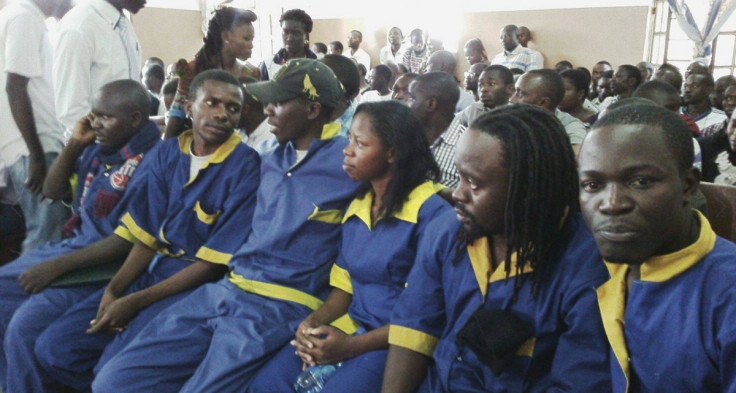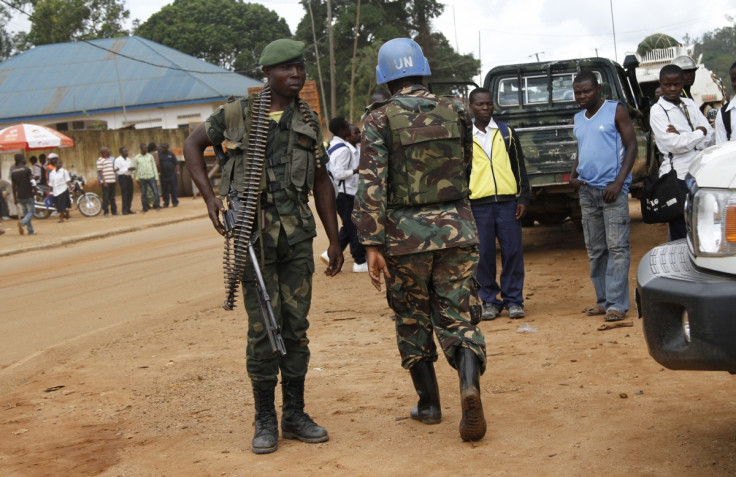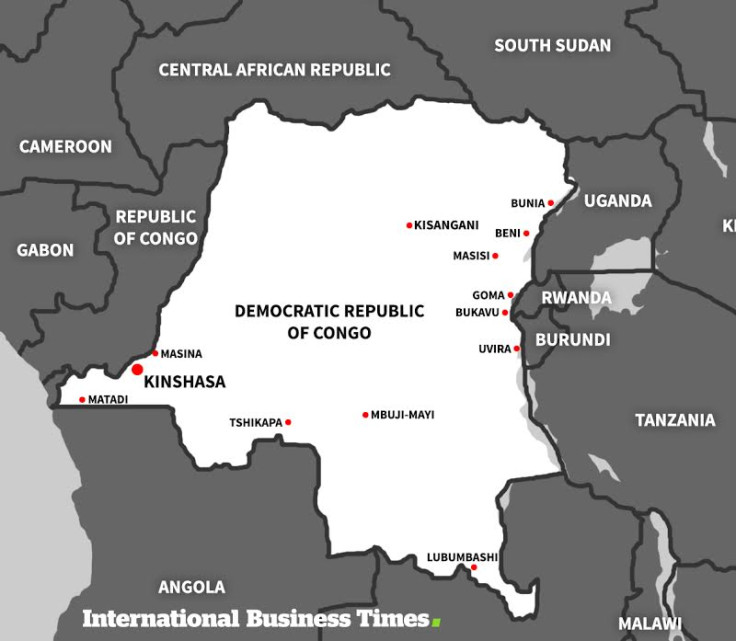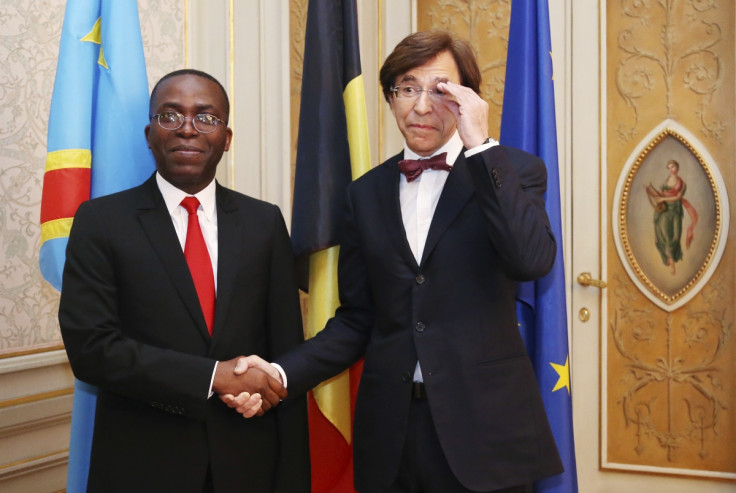DRC: Leading activist Fred Bauma calls for EU intervention over jailing of political activists

Prominent Congolese political activist Fred Bauma has urged EU nations to reconsider how they fund reforms of the justice system in the Democratic Republic of Congo (DRC) following the "unjust" sentencing of six youth activists to two years in jail on 24 February.
The five men and one woman were arrested on 16 February as they were preparing for a general strike (dubbed Ville Morte). They are members of Lutte pour Le Changement (Lucha), an opposition youth movement that was set up in 2012 in Goma, the provincial capital of North Kivu.
Calling for their immediate and unconditional release, Human Rights Watch (HRW) have described their conviction on the charge of attempting to incite public disobedience as " a clear sign of the growing assault on independent voices and civil society", which "brings into further question the independence of the justice system in the DRC". Civil rights groups, meanwhile, have also condemned the sentence, which many have described as "baseless" and "empty".
'Groundless' trial
Bauma is a leader of the Lucha movement and he has been illegally imprisoned since March 2015. Speaking through his lawyer, he said the sentencing showed that "judges had been pressurised" into convicting the activists and claimed that there had been many "grey areas" during the trial and evidence had been fabricated.
On 24 February, IBTimes UK reported that judges of the High Court had brought the trial forward without notice in a "deliberate attempt to judge the activists in secret". The court hearing was carried out at midday after defence lawyers refused to appear before the judges before 12noon.
"For me and for fellow activists, this [sentence] did not surprise us, even if it affects and saddens us a lot. It just proves us that injustice is rife in our country, and that we are right to continue to fight to remediate the situation," Bauma's lawyer reported him as saying. "The trial [was] so ridiculous that finally, it exposed what civil society and right[s] defenders have been claiming for a long time – that justice no longer exists in DRC."
Lucha activists claimed that the current system does not allow an equitable trial to prisoners currently detained in Congo – political or not. "What is more unnerving is that this justice, especially in the East [of the DRC], has been receiving vast funds from the European Union and the United Nations, for a so-called reform of our justice system. But, since all this time, changes have been minimal, and procedural equity is still lacking," Bauma said, referring to a reform project dubbed PARJE-Uhaki Safi.
Funded by the contributions of a number of donors including the EU, Belgium and Sweden, PARJE-Uhaki Safi (previously known as REJUSCO) has for overall objective to contribute to the consolidation of the rule of law by fighting against impunity and ordinary war in the provinces of North and South Kivu and the Ituri district in DRC's Orientale Province.

EU funding reforms
Between 2008 and 2012, the body funded a $17bn (£12.1bn, €15bn) assistance package to the DRC to reform a number of its institutions – including the judiciary.
According to a speech by the Head of Operations of the EU Delegation to the DRC, Vincent Dowd in 2012, the EU funded more than "€100m over 10 years" (£78.8m) to reform the Congolese justice system. Indeed, the EU and its institutions are the biggest financial and technical partners of the DRC – 44% and 9% respectively between 2008 and 2012.
The EU said it has "contributed to improving the application of law in the DRC in specific geographic areas by providing support to the operation and accessibility of the judiciary and strengthening the skills of the staff concerned".
However, in the 2014-2010 European Development Fund (EDF) memo, former EU Commissioner for Development Andris Piebalgs acknowledged "that the sustainability of this support is hampered by the weakness of the budget allocated by the Congolese government to the judiciary".
Calls on EU to hold DRC authorities accountable
According to Bauma, the EU, through its financial aid, is "indirectly supporting a justice or a police that represses an innocent population without holding them accountable".

In a July 2015 statement, the European Parliament expressed "grave concern at the continuing attempts to limit freedom of expression, peaceful assembly and association as well as violations of a growing number of these freedoms by the (Congolese) authorities, as it requires a political climate conducive to the proper conduct of the electoral cycle which will open next year in the DRC".
In a joint motion for a resolution, the Parliament said it "believes (to be) particularly regrettable that these violations relate specifically to the leaders of the opposition and youth movements".
Bauma, however, called on the EU nations to take action, and stand by its Parliament's statements condemning the repression and violation of human rights in DRC. "They can't just publish statements condemning the repression and the violation of our human rights, whilst continuing to give out money to fund these institutions that repress the people. It's contradictory, and it's mocking all these people who are victims of this repression," he said, according to his lawyer.
Between 2014 and 2020, the EU Commission said it will unlock a further €620m in financial aid to the DRC.
Almost all EU cooperation with the DRC was suspended between 1992 and 2002, because of the appalling human rights record of then ruler Mobutu Sese Seko after he unleashed a bloody crackdown on student demonstrations in the south-eastern city of Lubumbashi. The cooperation was limited to an action through NGOs.

© Copyright IBTimes 2025. All rights reserved.






















